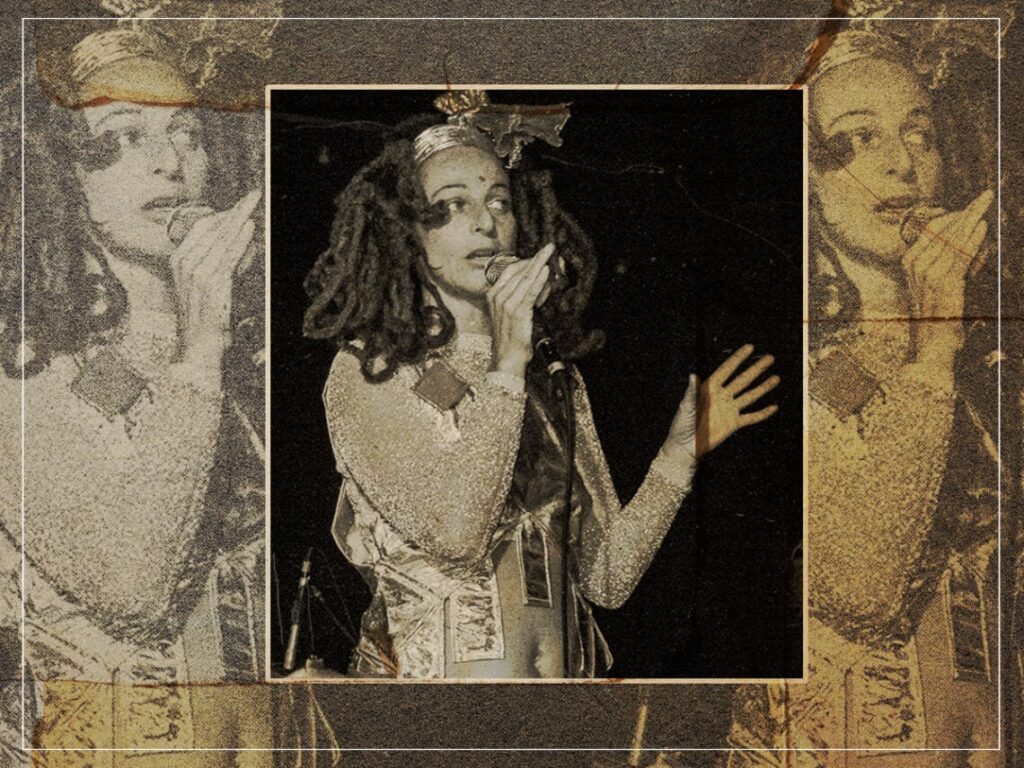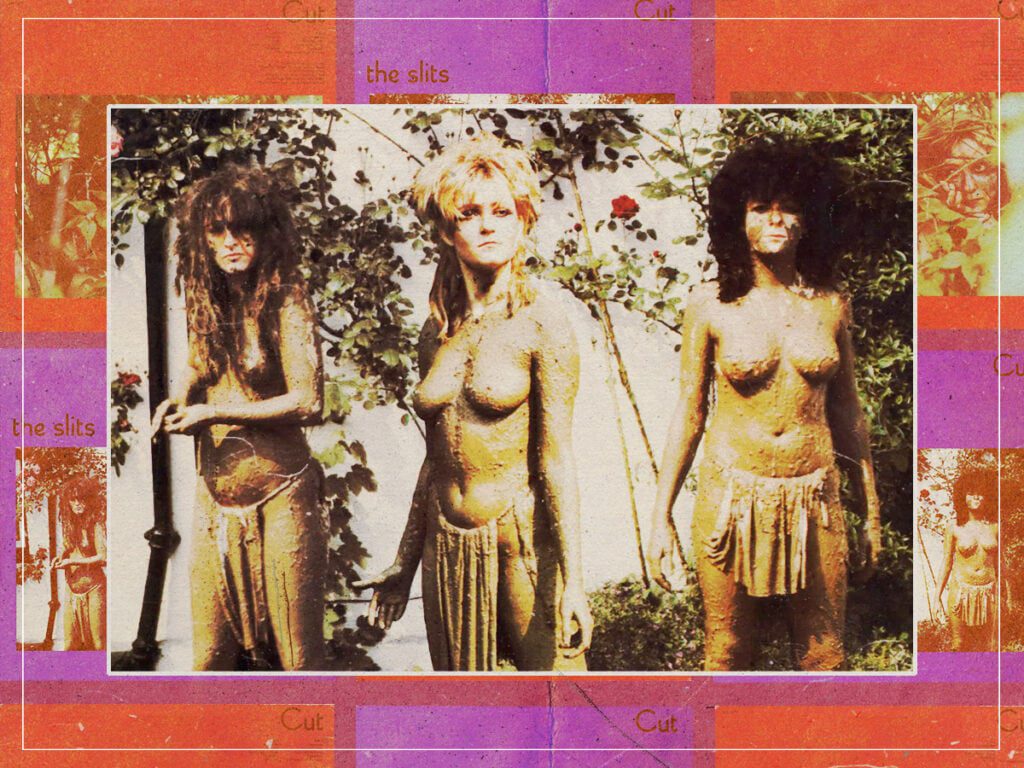The Slits’ Ari Up laments the loss of “female rebellion” in music: “I didn’t know it would come to this”
 Posted On
Posted On
(Credits: Far Out / Angus McIntyre)
“Ari is wonderful and terrible in equal measure,” writes Viv Albertine in her memoir, Clothes, Clothes, Clothes, Music, Music, Music, Boys, Boys, Boys. When The Slits formed, Ari Up (real name Ariane Daniele Forster) was just 14 years old. A wild child who’d only moved to London from Germany a few years prior -Up was a totally unique presence who was totally consumed by music. According to Albertine, she was “loud” and “boisterous” but also “a talented and committed musician” who simply didn’t care what she looked like. She was the perfect person to front a punk band.
Full of energy and dissatisfaction with “double standards” and “false people,” Up tore up the stage, screaming, shouting, jumping, dancing, and even pissing in front of eager crowds. The Slits were the first all-female punk band, making them even more revolutionary than their peers – The Sex Pistols and The Clash. Only Up possessed prior musical training – her bandmates did their best to learn on the job. This desperation to make music and rebel against the stereotypes placed on women prevailed, and The Slits became one of the most influential acts from the British punk movement.
Just over a decade after The Slits released their first album, Cut, which contained songs about drugs, shoplifting, love and the expectations placed on women, the riot grrrl movement emerged in the United States. Bands like Bikini Kill and Bratmobile took considerable inspiration from The Slits, channelling Up’s lack of inhibition as they sang about women’s liberation in a similar punk style.
The Slits were truly radical – barely any women were playing instruments and making such confrontational music when they emerged in the late 1970s. They also acted shamelessly on tour, trashing hotels and engaging in hedonistic behaviour like classic male rockstars, challenging people’s views of how women should behave. Talking to Loud and Quiet, Up, who sadly passed away in 2010, explained how The Slits were “the massive rebels” of the White Riot tour they embarked on with The Clash.

She said, “The way we looked was much more unusual or far out than the guys because by now, people were used to rock and roll looking guys, but girls in fetish wear, with their t-shirts slashed, hair standing a mile on end and in Doctor Martin boots? They couldn’t stand it.” People were so shocked to see women acting subversively that the band were often made to use separate entrances to hotels; they were even instructed not to come out of their rooms until they had to leave.
Up and her bandmates helped to pave the way for female musicians to be as outrageous and carefree as they wanted to be. The riot grrrl movement of the ’90s retained The Slits’ ethos through their raucous shows, community-minded spirit and DIY sound. These bands felt similarly revolutionary, creating a movement based on feminism that united countless women through music and zines which detailed their politics.
However, in the same interview, Up noted that since the beginning of the 2000s, there have been fewer women making truly revolutionary music, arguing that the music industry has instead churned out pseudo-radical singers. She picked out Lady Gaga as her main example, suggesting that her attempts to shock are wholly contrived and used as a tool to sell more records and get people’s attention.
Up argued, “I didn’t know it would come to this, where everything is like a factory. You see Lady Gaga, and she is dressed all crazy in these space-age outfits, but she is totally straight. She isn’t a rebel.” Stating that she “can see straight through her,” Up continued with her typical outspokenness, “She is business. Her sexuality is so trashy and cheap, and she is just singing about having too much and fucking about and being vulgar. People think that is rebellion. When you look at the philosophy, it is scary.”
She also used Britney Spears as an example, adding, “All these girls are so groomed and polished and are being put out there as an industry or as a gimmick. It is scary to think that this is how women are meant to look.” For Up, true rebellion cannot be achieved when an artist is so heavily controlled by a label, purposefully wearing dresses made of meat or outfits covered in fake blood while simultaneously singing pop songs that – lyrically and structurally – lack any sense of revolution or radicalism.
While Lady Gaga has made some undoubtedly catchy hits and honed an incredibly successful career in the mainstream that has allowed her to become one of America’s most beloved pop stars, it is hard to argue with Up’s point. Much of Gaga’s early rebellious and shocking image felt like nothing more than a tactic used to make older generations uncomfortable.
In reality, Lady Gaga’s music is widely accessible and marketable; there is nothing within the lyrics that could potentially cause people to want to rebel against oppressive systems, such as capitalism and the patriarchy. While there is certainly a place for this in our cultural landscape, Up’s feelings reflect a wider dissatisfaction with the way the music industry has changed over the years, marketing provocative pop stars with a faux sense of subversiveness and edginess.
Up’s frustration with the commodification and artificially of rebellion in most modern music is understandable, although it is hard to imagine anyone doing what The Slits did back in the ‘70s today. It’s no longer as shocking for women to dress unruly or play instruments, but there are plenty of women who are pushing the boundaries in their own authentic ways, from Katie Jane Garside to Mitski.
[embedded content]


